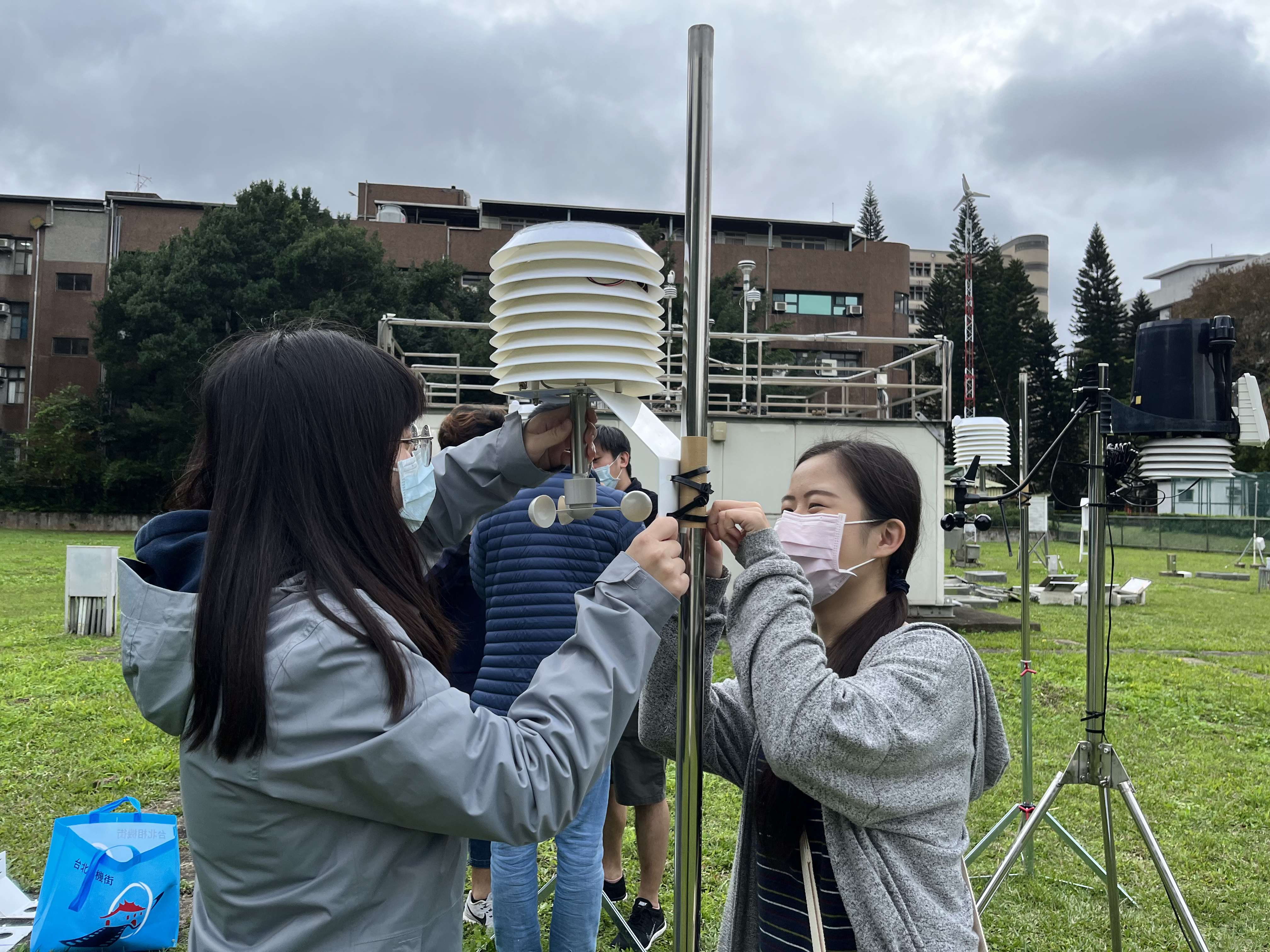Degree Programs
National Taiwan University does provide a variety of education programs related to climate change. The most noticeable is the International Master/Doctoral Degree Program in Climate Change and Sustainable Development (IPCS). Established in 2015 by the College of Science, IPCS is the first Master's program that includes "Climate Change" in the tile in Taiwan. IPCS is an interdisciplinary degree program that encompasses a global perspective and consists of 25 faculty members from 13 departments across 6 colleges in NTU. Besides IPCS, the following colleges (Science, Social Science, Engineering, Bio-Resources & Agriculture, Public Health, Law, and Life Science) all have various courses addressing "Climate Science", "Climate Impacts", "Climate Adaptation & Mitigation", "Climate in Society".

Figure 1: IPCS Student setting up meteorological instruments on campus.
Outreach Programs
NTU’s Risk Society and Policy Research Center (RSPRC) is dedicated to promoting the “Youth Net-Zero Empowerment Platform” project, aiming to build a co-learning network for Taiwanese youth in net-zero knowledge and sustainability advocacy based on policy, legal frameworks, and corporate governance. Through training programs such as salons, lectures, and courses, RSPRC works with young people who aspire to engage in sustainability advocacy, careers, or related academic research to shape and implement Taiwan’s net-zero transformation goals. In 2023, RSPRC held four youth training salons and, with the sponsorship and support of the Fubon Cultural & Educational Foundation, launched the inaugural “Net-Zero Youth Academy.” The Academy provides a three-week course open to the public for free, targeting students and young professionals. RSPRC hopes that through this systematic curriculum, participants will obtain the net-zero vision with a social science perspective, cultivate knowledge of net-zero transformation in both global and local contexts, and exert substantial influence on the advocacy of net-zero legislation and policies.

Figure 2: Participants of the inaugural Net-Zero Youth Academy.






